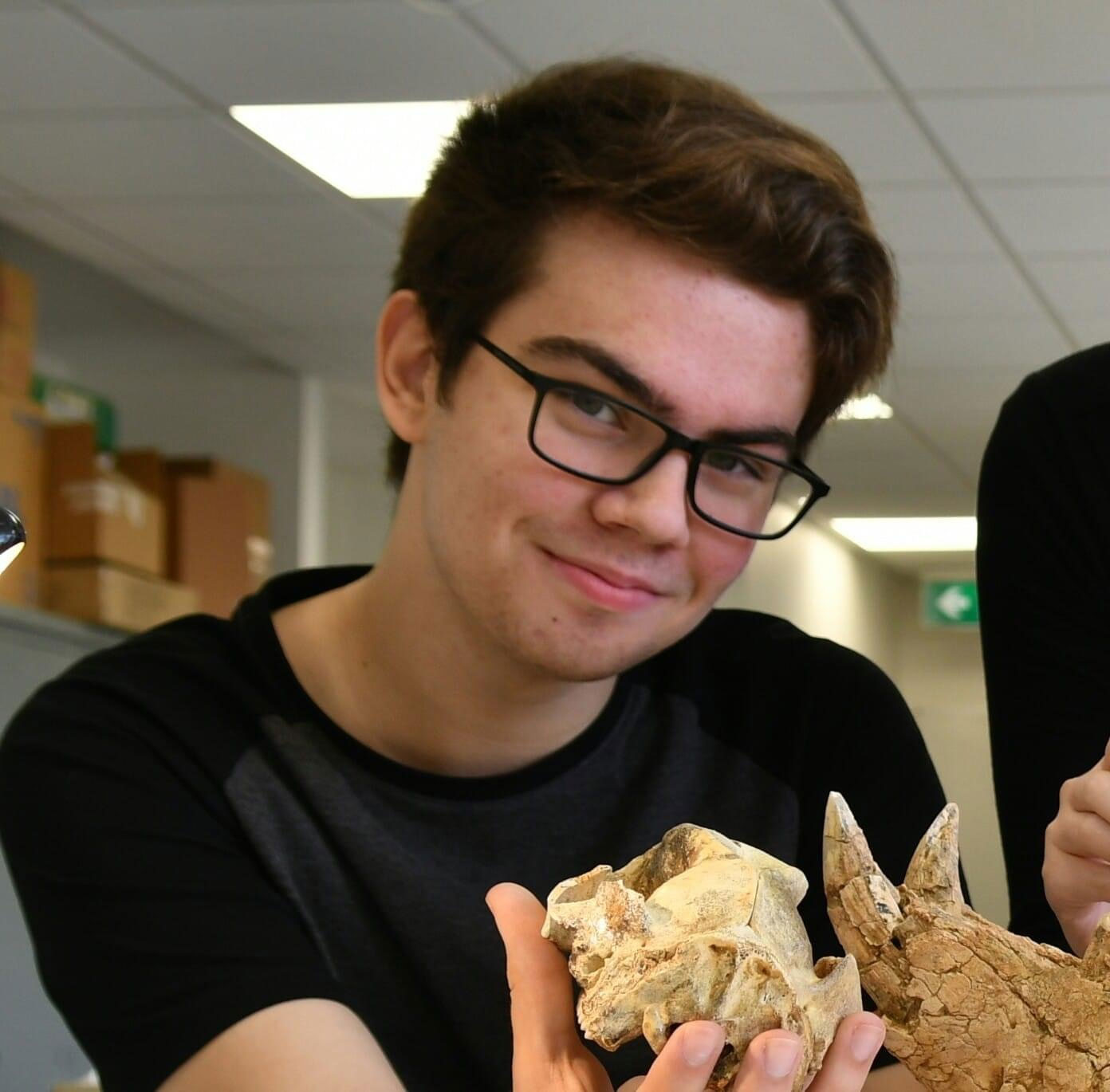
Give a general description of your studies.
I am undertaking a Bachelor of Sciences (Palaeontology) with Honours. Palaeontology is the study of prehistory, particularly in a biological context. This degree develops skills pertaining to the scientific method, mathematical competency, and their application within experimental frameworks.
What excites you about Palaeontology? Why did you decide to go down this path?
Over the past ~250 years, an extraordinary amount of fossil material has been collected worldwide, and their totality has allowed for an incredible look into the history of life on Earth, from the beginnings of multicellular life in the Ediacaran, to our own evolution in Africa. Yet much remains undiscovered, and palaeontology remains a frontier of scientific inquiry. The palaeontology course at Flinders University primes its’ students for future discoveries.
Why was Flinders the right choice? What makes Flinders stand out from other universities?
Flinders University is the only University in Australia with a dedicated palaeontology degree, and its’ facilities are used by researchers as the basis of ongoing study and discovery. The faculty of the Palaeontology department at Flinders are some of the most knowledgeable in their fields and represent an incredible boon to students.
Describe your learning experience at Flinders; What key areas of your studies most excite you, or are stand outs due to the topic, the lecturer, or other elements?
Flinders is fortunate to employ some of the leading voices in Australian palaeontology. Their commitment and their drive engage the student cohort and challenges them to think critically. This, coupled with a hands-on approach to learning, gives students a real sense of working in palaeontological contexts.
The current state of the field is also inherently engaging, and the recent megafaunal extinctions form much of the cohorts’ study. Often, seemingly simple questions give way to complex and nuanced debates with no clear answers; thus, students voices add to the discussion of current dilemmas in palaeontology.
Describe the Flinders’ environment. What physical aspects of Flinders stand out?
The laboratory and scientific facilities at Flinders are critical to students learning and researchers’ discoveries. Central campus is, however, the best space at the university, which provides both large social areas and secluded study areas.
What practical placements or experiences have helped along the way?
The Vertebrate Palaeontology degree allows students access to some of the premier fossil sites in Australia as part of excursions and field trips. Students therefore have the rare opportunity to take part in the excavation and preparation of specimens and make new discoveries along the way. Two major field trips include the excavation of new Pleistocene material from the Naracoorte Caves, and a trip into the Grampians of Victoria to examine early fish in Devonian deposits. Application of the skills developed in class in the field is an incredible opportunity.
Your future career plans. Where do you see your studies taking you?
Palaeontology is a wide and rich area of research, and the skills fostered in this degree allow student to apply them anywhere in the field.
But, for the moment, I’m just focusing on my upcoming honours course.
Tell us why you would recommend studying Palaeontology at Flinders?
The Flinders palaeo course is an inherently stressful study, yet the incredible staff, the access to world class geology and fossil material, and the accessibility of the study content means that there is no better place in the southern hemisphere in which to study palaeontology.
Any other thoughts?
In addition to its’ amazing course work, Flinders boasts any number of engaging clubs and societies, including the awarded Flinders University Palaeontological Society (FUPS) which acts as a social conduit for palaeo students and staff.

